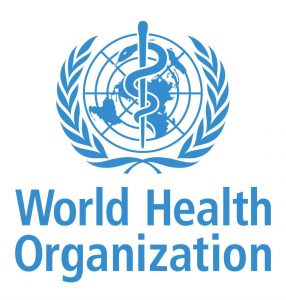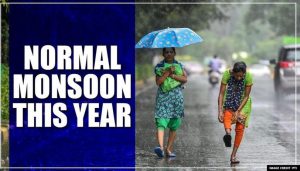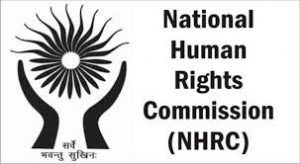Table of Contents
Daily Current Affairs for Government Exams:
Today Current Affairs:16th April 2020 for UPSC IAS exams, State PSC exams, SSC CGL, State SSC, RRB, Railways, Banking Exam & IBPS, etc
Contents:
- World Health Organisation (WHO):
- India to Receive Normal Monsoon: IMD
- International Energy Agency (IEA):
- Amendments to EIA NOTIFICATION, 2006
- NHRC on Public’s Rights:
- INDO-U.S. MISSILE DEALS:
- Other important current affairs.
1. United States (US) has decided to cut off US payments to the World Health Organisation (WHO) during the Covid-19 pandemic.:

The United States (US) has decided to cut off US payments to the World Health Organisation (WHO) during the Covid-19 pandemic.
- Reasons: The US has accused the WHO of failing to curb the early spread of the coronavirus.
- It has been claimed by the US that the outbreak could have been contained at its source and lives could have been saved if the United Nations (UN) health agency (i.e. WHO) has done a better job.
- The US has criticized the WHO for being China-centric and has alleged that earlier WHO had criticized the US’s ban on travel from and to China.
- This comes when the global caseload approaches 2 million, including over 1 lakh deaths.
- The US has seen the most cases (over 6 lakh) and deaths (over 26,000) despite being the highest contributor (almost 15%) to the WHO.
- However, the US has made it clear that it would continue to engage with the WHO in pursuit of meaningful reforms.
Other Criticisms:
- Most countries closed down air travel at the first stage but the WHO took a stand against travel and trade restrictions on China.
- The International Health Regulations Emergency Committee urged countries to be prepared but did not recommend any travel or trade restriction.
- According to the National Centre for Disease Control, WHO officials rejected Indian concerns saying that there was no human to human transmission.
Impact: For the WHO, the loss of about 15% of its total funding is bound to have an impact on the world over
2.India to Receive Normal Monsoon: IMD:

Recently, the India Meteorological Department (IMD) has observed that India will likely have a normal monsoon, with a chance of above-normal rain in August and September 2020.
- Every year, the IMD issues a two-stage forecast.
- The first one in April and the second one in the last week of May, which is a more detailed forecast and also illustrates how the monsoon will spread over the country.
Forecast
- The June-September rainfall accounts for 75% of the country’s annual rainfall.
- Quantitatively, the monsoon seasonal rainfall is likely to be 100% of the Long Period Average (LPA) with a model error of ± 5%.
- The LPA of the season rainfall over the country as a whole for the period 1961-2010 is 88 cm. IMD has officially redefined the definition of ‘normal’ rainfall and reduced it by 1 cm to 88 cms.
- The Indian Ocean Dipole, a temperature anomaly in the ocean that can increase monsoon rain, is also expected to be in a “neutral” state during the monsoon.
- According to the statistical model, there is a 41% forecast probability of a normal monsoon.
- The expectation of excess rain comes from a forecast by the dynamical model, according to which, there is a high probability (70%) for the rainfall to be above normal to excess.
3.International Energy Agency (IEA):

IEA has made some observations about the impact of global lockdown on oil demands across the world.
- The price of crude has already fallen about 60% since the start of the year due to a pricing war between Saudi Arabia and Russia and then the economic devastation wrought by the virus outbreak.
- Now, global demand for oil will fall this year by the most ever due to the economic lockdowns enforced around the world to contain the coronavirus pandemic.
- An estimated drop in demand of 9.3 million barrels a day this year is equivalent to a decade’s worth of growth.
Impact and implications of these changes: - While cheaper energy can be helpful for consumers and energy-hungry businesses, it is below the cost of production.
- That is eating away at the state finances of oil-producing countries, many of whom are relatively poor economies, and pushing companies to bankruptcy.
- With broad limits on travel and business, many consumers are unable to take advantage of the low prices anyway.
- The recent deal by OPEC and other countries to reduce global output by some 9.7 million barrels a day will help stabilize the situation somewhat.
- On top of those cuts, countries like China, India, South Korea, and the United States will look to buy more oil to store away in strategic reserves.
About IEA:
- Established in 1974 as per the framework of the OECD, IEA is an autonomous intergovernmental organization.
- MISSION – To ensure reliable, affordable and clean energy for its member countries and beyond. Its mission is guided by four main areas of focus: energy security, economic development, environmental awareness and engagement worldwide Headquarters (Secretariat): Paris, France.
4.Amendments to EIA NOTIFICATION, 2006:
To ramp up the availability/production of various drugs against COVID-19, the Ministry of Environment has amended the Environment Impact Assessment(EIA) Notification 2006.
- All projects or activities in respect of bulk drugs and intermediates, manufactured for addressing various ailments, have been re-categorized from the existing Category ‘A’ to the ‘B2’ category.
- Projects falling under Category B2 are exempted from the requirement of collection of Baseline data, EIA Studies, and public consultation.
- The re-categorization of such proposals has been done to facilitate the decentralization of appraisal to State Level to fast track the process.
- This amendment applies to all proposals received up to 30th September 2020.
5.NHRC on Public’s Rights:

The National Human Rights Commission (NHRC) has asked the Centre to issue an advisory to all States and Union Territories to implement the ongoing lockdown without violating the human rights of the public.
- Previously, the NHRC has also asked the Ministry of Home Affairs to address the concerns of the mentally ill people on the streets during the lockdown to check the spread of the novel coronavirus.
- To effectively implement the lockdown guidelines, the public servants, sometimes under tremendous pressure, tend to deal with the people, especially the ill-informed poor laborers, in a very harsh manner undermining their rights.
- The NHRC through an advisory wants to ensure that the public servants behave sensibly with the people, particularly belonging to vulnerable sections, respecting human rights relating to their life, liberty, and dignity.
- It has said that In the meantime necessary directions may be issued by the Ministry to all the States and Union Territories, to ensure that persons suffering from any kind of mental ailments under their jurisdiction are provided with proper counseling towards necessary precautions for their care and protection from the virus and not deprived of basic amenities like food, shelter, and medical care, etc.
National Human Rights Commission
- Statutory Body: NHRC was established on 12th October 1993. The statute under which it is established is the Protection of Human Rights Act (PHRA), 1993 as amended by the Protection of Human Rights (Amendment) Act, 2006.
- The PHRA Act also provides for the creation of a State Human Rights Commission at the state level.
- In-Line with Paris Principles: Paris Principles were adopted for the promotion and protection of human rights in October 1991, and were endorsed by the General Assembly of the United Nations in 1993.
- The NHRC is an embodiment of India’s concern for the promotion and protection of human rights.
- Section 2(1)(d) of the PHRA defines Human Rights as the rights relating to life, liberty, equality, and dignity of the individual guaranteed by the Constitution or embodied in the International Covenants and enforceable by courts in India.
6.INDO-U.S. MISSILE DEALS:

The U.S. State Department has approved two potential missile deals with India, for an estimated $92 million and $63 million.
- The first deal, for which Boeing is the contractor, is for 10 AGM-84L Harpoon Block II air-launched missiles and related equipment. These missiles can be fitted onto Boeing’s P-8I (Poseidon-Eight India) maritime patrol aircraft.
- The second deal, for $63 million and principally contracted with Raytheon Integrated Defense System, is for 16 MK 54 All Up Round Lightweight Torpedoes (LWT); three MK 54 Exercise Torpedoes (MK 54 LWT Kit procurement required); and two Recoverable Exercise Torpedoes (REXTORP).
- There are no known offset agreements for both deals and any offset agreement will be defined in negotiations between India and the contractors.
Other important current affairs:
1. Google has launched a global Journalism Emergency Relief Fund.:
- It has been launched through the Google News Initiative to support small and medium-sized news organizations producing original news for local communities.
- The Fund aims to support the production of original journalism for local communities in the face of the COVID-19 pandemic. Operating globally, it will provide an easily accessible route to financial assistance at this critical time.
- The move comes with the media sector facing deep cutbacks resulting from lockdowns, an intense economic slump and a retrenchment in advertising revenues that many news outlets depend on.
2. The National Legal Services Authority (NALSA) has said that around 11,077 undertrials have been released from prisons nationwide as part of the mission to decongest jails following the COVID-19 pandemic.
- NALSA has also been assisting prisoners who were eligible to be released on parole or interim bail under the relaxed norms, through its panel lawyers.
- NALSA has been constituted under the Legal Services Authorities Act, 1987, to provide free legal services to weaker sections of society.
- The aim is to ensure that opportunities for securing justice are not denied to any citizen by reasons of economic or other disabilities.
- ‘Nyaya Deep’ is the official newsletter of NALSA.
3. More than 50,000 Civil Defence volunteers are working at the grassroots level in various roles and capacities to assist the local administration in implementing the measures to contain the spread of coronavirus (COVID-19).
- The Civil Defence personnel are supplementing the local administration in conducting surveillance of suspected and confirmed COVID-19 cases.
- They have been working as rapid response teams.
- They have been deployed in all the States and most Union Territories, barring Ladakh, Daman & Diu, and Puducherry.
- Rajasthan, Karnataka, Kerala, Uttar Pradesh, Delhi, Uttarakhand, and Assam have taken the lead in using their services.
- The volunteers have been deployed under the command of District Magistrates to assist the local administration in implementing the COVID-19 guidelines and policies effectively.
4. The rupee slipped 17 paise against the dollar on 15th April 2020, amid heightened uncertainty over the economy as the Covid-19 pandemic continues to spread.
- The rupee closed at a record low of 76.44 against the dollar on 15th April 2020. The rupee was 76.27 against the dollar on the previous day.
- However, the dollar index was trading 0.3% higher at 99.19. The U.S. Dollar Index (USDX) is an index (or measure) of the value of the United States dollar relative to a basket of foreign currencies.
- It can be noted that the rupee has weakened about 7% against the dollar in 2020 and has hit a record intraday low of 76.55.
- This implies that the rupee has become less valuable concerning the dollar, implying depreciation of the rupee.
- According to some experts, the Reserve Bank of India (RBI) has not intervened strongly in the market to stop rupee depreciation.
- They expect the RBI to intervene once the rupee breaches the 77 to a dollar.
In its macroeconomic review, RBI had said if the rupee depreciates 5% from the baseline (i.e. Rs 75 per dollar), inflation could rise by 20 basis points (bps) while the Gross Domestic Product (GDP) growth could be higher by about 15 bps via increased net exports.
5. Union Agriculture Minister launched the All India Agri Transport Call Centre:
- The 24×7 service All India Agri Transport Call Centre is an initiative of the Department of Agriculture, Cooperation and Farmers Welfare.
- It is operated by the IFFCO Kisan Sanchar Limited (IKSL) from their offices in Faridabad, Haryana.
- It is for coordination between states for inter-state movement of perishables.
- This will facilitate the inter-state movement of perishables in the current situation of lockdown due to the COVID-19 threat.
- Truck drivers and helpers, traders, retailers, transporters farmers, manufacturers or any other stakeholder who is facing problems in inter-state movement of agricultural, horticultural or any other perishable commodities besides seeds and fertilizers may seek help by calling at the Call Centre.
6. Indian Council of Medical Research (ICMR) has issued guidance on the use of the Truenat beta CoV test which has been validated by the research body for undertaking a screening test for COVID-19.
- Truenat was developed by the Indian firm MolBio Diagnostics Pvt Ltd Goa for the detection of TB bacteria and also drug-resistant TB bacteria.
- The Truenat test detects the TB bacteria with the help of a polymerase chain reaction (PCR) technique.
- However, in the case of drug-resistant TB bacteria with any resistance to rifampicin, the detection is done by doing a second RT-PCR (Reverse transcription-polymerase chain reaction).




